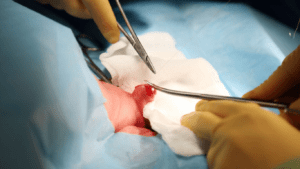A colonoscopy clinic can do a thorough check of your large intestine to spot issues early. If you’ve just been recommended a visit to a colonoscopy clinic in Singapore, you might wonder if you will be able to walk out knowing exactly what’s wrong.
Or, if you must wait. Those are the questions we will be addressing in today’s piece. But first, during a colonoscopy, a specialist uses a thin camera to look inside your colon where they check for growths, inflammation or signs of cancer.
Please, follow this link to read more about colonoscopies and other basics: https://www.andrea-digestive-clinic.com/. Now, for this procedure, you usually arrive 30 minutes before for paperwork and prep.
The procedure itself takes about 30 to 45 minutes under sedation. Afterward, you rest for about 30 to 60 minutes as the sedation wears off.
What is the Most Common thing Found on a Colonoscopy?
There are several conditions which appear frequently during colonoscopies. However, these three are the most common things found on colonoscopies;
- Colonic Polyps: Polyps are growths that form on the lining of the colon. Most polyps are benign (non-cancerous), but some can become cancerous over time. If the doctor sees a polyp, they usually remove it immediately and send it to a lab for analysis. Removing polyps early lowers the risk of them turning into cancer. After removal, you might feel mild cramping, but it usually passes quickly.
- Diverticulosis: Diverticulosis happens when small pouches push out through weak spots in the colon wall. In many people, these pouches cause no symptoms, and they only discover them during routine checks. If discovered during your visit to a colonoscopy clinic in Singapore, the doctor will note its location and size. Although most cases don’t need immediate treatment, the doctor may give you advice on fibre intake and hydration to prevent complications. In some situations, diverticulitis (infection of these pouches) can occur, and then you follow a specific treatment plan.
- Inflammatory Bowel Disease (IBD): Two main types of IBD—ulcerative colitis and Crohn’s disease—often show up in colonoscopies. Ulcerative colitis causes inflammation and sores in the inner lining of the colon and rectum. Crohn’s can affect any part of the digestive tract but often appears in the colon. During a colonoscopy, the doctor looks for redness, ulcers or other signs of inflammation. Biopsies are taken to confirm the diagnosis. Early detection can help you start treatment sooner and ease symptoms like abdominal pain and diarrhoea.
Do you get Colonoscopy Results Immediately?
One of the most common questions we have gotten from those who visit our colonoscopy clinic in Singapore is; “Will you tell me the results of a colonoscopy right away?” Now, when you wake up from sedation at a colonoscopy clinic, the doctor often discusses what they saw.
However, not every finding comes with instant clarity. If the doctor sees a polyp, ulcer or obvious inflammation, they can tell you while you’re still in recovery.
For example, the doctor might say, “I saw a small polyp in your sigmoid colon and removed it.” With this live feedback, you get to know whether something was spotted and addressed on the spot.
Visual confirmation is usually reliable, but it’s only part of the picture. If a biopsy was taken, results often take longer.
When your doctor removes tissue or polyps, the samples go to a laboratory for histology. Lab technicians examine the cells under a microscope to tell if they’re benign, precancerous or cancerous.
This process can take five to ten working days. Only after you get this report can you understand the exact nature of the growths.
The doctor’s office will contact you by phone or email with those definitive results. It is also worth mentioning that stool tests sometimes accompany a colonoscopy.
If you gave a stool sample before the procedure, the lab might check it for hidden blood (faecal occult blood test). That result can take two to three days.
Hidden blood may indicate bleeding lesions or early cancer. So, your doctor needs those results to form a complete plan.
Your doctor may recommend further imaging if something looks suspicious, such as an irregular mass. They might request a CT scan or MRI to see surrounding tissues.
These images can take another week to schedule and interpret. Only after combining all data—visual findings, biopsy and imaging—does the doctor give you a full report.
What Happens if they Find Something During a Colonoscopy?
Many patients who visit our colonoscopy clinic in Singapore also commonly ask; what happens if you have a positive colonoscopy? Now, if your specialist finds anything unusual, a good doctor will act immediately.
For example, if they find a small polyp, may remove it immediately using a snare or forceps. You do not feel pain, as you are sedated.
After removal, the polyp is sent to the lab for histological analysis. You remain awake and comfortable during this step.
If the doctor sees inflammation or ulceration suggestive of inflammatory bowel disease, they will take several biopsies to confirm whether it’s ulcerative colitis, Crohn’s disease or another condition. While waiting for biopsy results, you follow a temporary diet plan and medication regimen.
The doctor may prescribe anti-inflammatory drugs or antibiotics until the lab report arrives. If the doctor finds a large mass or suspicious lesion, they will note its size, shape and location.
They probably won’t remove it entirely on the spot, especially if it looks cancerous. Instead, they may take targeted biopsies and recommend further imaging like a CT scan.
You and your family will discuss next steps, which could include surgical referral. In cases of bleeding, the doctor can apply cauterisation or clips to stop it immediately.
They also advise you on rest, diet and follow-up appointments. If bleeding is severe, you might stay under observation until it stabilises.
It’s a Wrap!
When you visit a colonoscopy clinic, you will learn what the doctor sees as soon as you wake up—such as polyps removed or areas that need biopsy. A good colonoscopy clinic in Singapore will guide you through every finding to ensure you know why a biopsy or further scan might be needed.
Were you recommended a colonoscopy or just want to put your mind at ease? Book a colonoscopy with us today and meet caring experts who will give clear explanations, so you know exactly where you stand. Call or visit us at;
Andrea’s Digestive Clinic: Colon | Liver | Gallbladder | GERD | Acid Reflux Specialist
101 Irrawaddy Rd, #21-11/12 Royal Square Medical Centre, Singapore 329565




